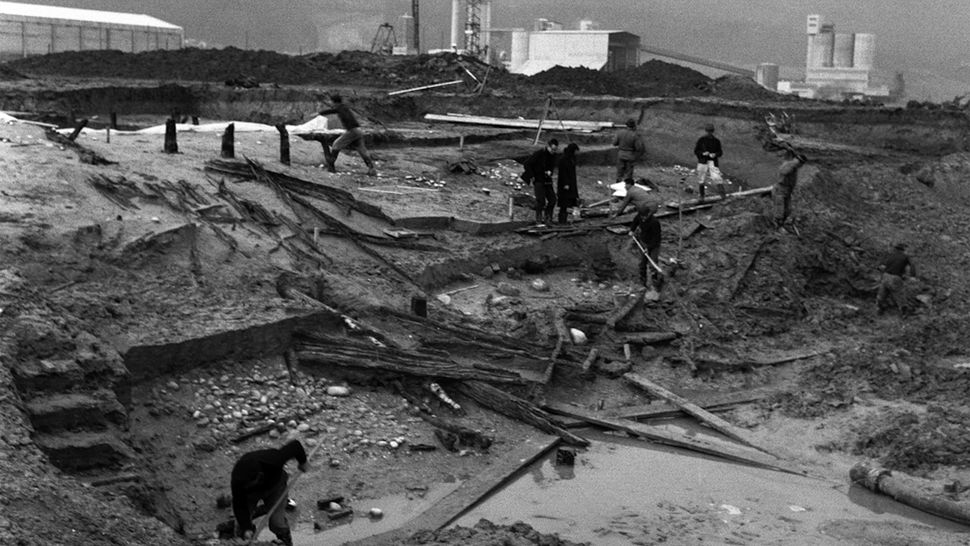2,000 years ago, a bridge in Switzerland collapsed on top of Celtic sacrifice victims, new study suggests
By Kristina Killgrove published June 30, 2024
A bridge that collapsed 2,000 years ago in what is now Switzerland may have fallen on Celtic sacrifice victims, a new study finds.

A black and white photo of the discovery of the bridge
The fallen bridge was discovered along the Thielle river in the 1960's. (Image credit: Archeo26, CC BY-SA 4.0, via Wikimedia Commons)
When a small bridge in western Switzerland collapsed 2,000 years ago, the bodies of 20 people, three cows and two horses became entangled in the wreckage. But whether this event was the result of a catastrophic flood or an elaborate ritual sacrifice has puzzled archaeologists for decades. Now, new research, including an analysis of skeletal trauma and genetics, suggests that the answer may be both.
In the late 1960s, the splintered remains of a wooden bridge across the Thielle River were discovered along with iron and bronze weapons; pottery; and two dozen human and animal skeletons. Most of the recovered human skeletons were those of adult males, in some cases pinned underneath the beams of the bridge, which was initially constructed in 135 B.C. While a flood may have triggered the collapse, resulting in deaths, the other possible interpretation is a Celtic ritual offering of sacrificed humans and animals.
In a study published June 17 in the journal Scientific Reports, researchers used a variety of analysis techniques to suggest that there may have been a complicated sequence of events at the site, including both sacrifices and a bridge collapse.
The researchers investigated the 20 human skeletons to determine each victim's age at death, sex and traumatic injuries. They discovered that most of the dead were male and that about half of the people had sustained blunt-force injuries around the time of death. However, most of the injuries were to the skull, which is at odds with the limb injuries expected in a collapse, and more closely match head trauma inflicted by others. Additional investigations of the animal remains revealed no evidence of sharp trauma that is usually seen in sacrificial contexts, supporting an accidental bridge collapse.
More:
https://www.livescience.com/archaeology/2000-years-ago-a-bridge-in-switzerland-collapsed-on-top-of-celtic-sacrifice-victims-new-study-suggests
